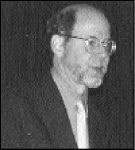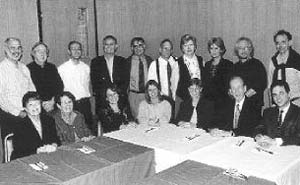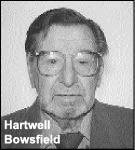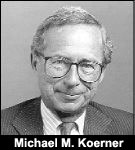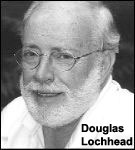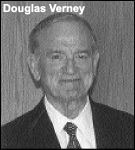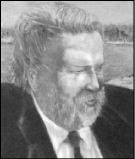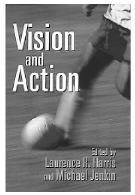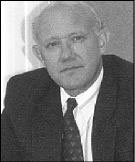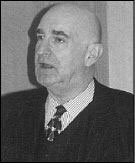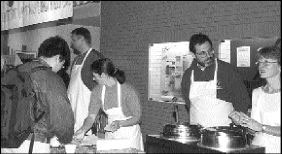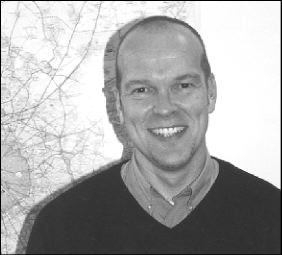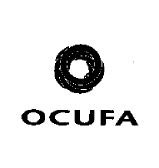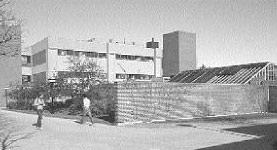
|

|
| | |
| | VOLUME 30, NUMBER 11 | WEDNESDAY, NOVEMBER 24, 1999 | ISSN 1199-5246 | | |
| | ||||
|
|
In Canada, SSHRC is the primary national source of public support for social sciences and humanities research. As of 1998-1999, SSHRC's parliamentary allocation (including the $13 million 1998 increase [see story above]) stood at $104 million. Of this amount, $96 million is invested in research, research training and research communications activities conducted through Canadian universities. In the US, social sciences and humanties researchers have access to a pool of approximately $1.25 billion (US) in public funds through the National Science Foundation, the National Endowment for the Humanities and the National Institutes of Health. In addition, in contrast to Canada, there are a large number of private organizations and foundations in the US which provide support for academic research. For example, there are more than 200 foundations funding research on the social aspects of health. The Ford Foundation invests $350 million annually for research in the applied social sciences - more than three times SSHRC's current budget.
| |||
|
|
By Nishat Karim Robert Horvitz, professor of biology, Massachusetts Institute of Technology Cars. When we want to drive them, we place the key in the ignition and we are merrily on our way. Usually we don't think about what goes on under the hood while we are driving unless, of course, something goes wrong. Our bodies are just the same. Just under our layers of skin lie the secrets to our body's success. As an uncountable number of cells and our organs do their work, we go about ours. Only when something seems wrong, do we notice. For years now, Dr. Robert Horvitz, with a team of others, has studied what could be considered the nuts and bolts of the human body - its cells. These scientists have discovered that there is a genetic program for cell death - that is the death of cells is in fact a biological process. On Oct. 19, 1999, Horvitz, a professor in the Department of Biology and an investigator at the Howard Hughes Medical Institute at the Massachusetts Institute of Technology, Cambridge, Massachusetts, spoke to an audience of students and faculty at York University about the wonders of programmed cell death. His lecture, Genetic Control of Programmed Cell Death, was held in the Senate Chamber where community members keenly listened to the information he had to share. As part of the 40th Anniversary of the Gairdner Foundation International Awards, international scientist awardees such as Horvitz spoke in various centres across Canada, as well as at an international symposium in Toronto entitled Minds that Matter between Oct. 20 and 22. As a Gairdner award recipient, Horvitz spoke about the process of cell death and the various studies done to prove that in fact our cells do not die sporadically, rather they are programmed to die. According to studies done in his laboratories, cell death is an active process with various stages involved and our genes are a part of this process. Horvitz went on to say that abnormalities in cell death - that is, too much or too little cell death within the body (if even one step in the process is altered), can lead to abnormalities in humans. Abnormalities such as certain forms of cancer, are generated due to a lack of cell death. After a detailed and informative discussion of genes and steps involved in programmed cell death, Horvitz took some time to privately answer questions. His knowledge, gained from years of experience, surely enlightened many minds - young and old. As a graduate of the Massachusetts Institute of Technology and Harvard University, he has served on many editorial boards, visiting committees and advisory committees and is currently a member of the Advisory Council of the National Center for Human Genome Research (NIH). Horvitz was president of the Genetics Society of America in 1995 and has received numerous awards for his accomplishments. He was elected to the US National Academy of Sciences and is a Fellow of the American Academy of Microbiology.
| |||
|
|
H. Ian Macdonald In June, H. Ian Macdonald, president emeritus of York University and professor of public policy and economics, received an honorary doctorate from the Open University of Sri Lanka in Colombo. As chairman of the board of governors of the Commonwealth of Learning, Macdonald was recognized for his eminence in the fields of academia and government and his special contribution to distance education. He is the first Canadian and second non-Sri Lankan to receive an honorary degree in the university's history. Judith Rudakoff For three consecutive years, a York University professor has been honoured in NOW magazine as the Best College/University professor in their annual readers poll. This year's winner, Judith Rudakoff, a professor of theatre in the Faculty of Fine Arts was announced in the November 4 issue of NOW. Rudakoff is also the recipient of the 1998 Inaugural Dean's Prize for Teaching Excellence in the Faculty of Fine Arts and the 1999 University Wide Award for Teaching Excellence at York University. Both these nominations were put forth by students, past and present. As well, Rudakoff was nominated as the 1999 Council for Advancement and Support of Education "Canadian Professor of the Year" by York University. Previous York winners of the NOW readers poll Best professor include the Department of Music's Professor Rob Bowman, in 1997, and Professor Arthur Haberman, of the Department of Humanities in 1998.
| |||
|
|
The York University Jewish Teacher Education Programme hosted a gathering of the Association of Institutions of Higher Learning for Jewish Education on Oct. 17-19, 1999. The goal of the consultation was to develop strategies for attracting candidates into teacher preparation programs. Pictured here are representatives of Brandeis University, Boston; Gratz College, Philadelphia; Hebrew Union College-Jewish Institute of Religion, Los Angeles; Jewish Theological Seminary, New York; Cleveland College of Jewish Studies, Cleveland; Boston Hebrew College, Boston; and the Jewish Educational Service of North America, as well as York University, (the representative from McGill does not appear in the photo). Among those attending from York, in addition to Alex Pomson, Koschitzky professor and director of the Jewish Teacher Education Programme, was York's new Dean of Education Terry Piper (standing fourth from the right).
| |||
|
|
By Nishat Karim Six new members were inducted into the York University Founders' Society this Fall, five during the Fall Convocation ceremonies on Nov. 5 and 6. Hartwell Bowsfield joined the Department of History at York in July 1970 and served as the first archivist of the University. York is very grateful to Bowsfield - a scholar, teacher, historian and builder whose work as University archivist continues to serve York's community of students, staff and faculty. It is largely because of his work that we have a complete record of York's earliest years. Along with making significant contributions to various educational and public organizations in Ontario and Canada, for which he received an honorary LLD from York in 1992, Alan M. Clarke played a pivotal role during the formation of York University. In the mid-1950s, Clarke held the position of secretary of the YMCA Organizing Committee through which York was created. He played an important role in organizing the committee, keeping it alive and moving the University project forward.
As an early member of the Board of Governors of York University, Michael M. Koerner has made significant contributions to the founding and development of York. He has been a great supporter and friend to York University over the years. Koerner is also a member of the Order of Canada and was the president of the Art Gallery of Ontario between 1982 and 1984. As one of the first faculty appointments made to York University in 1960, John R. Seeley worked closely with Murray Ross, founding president of York, in defining the directions of the new institution. Later in 1962, he was appointed the first Chair of the Department of Sociology. As a distinguished scholar, Seeley was among the early academic leaders of York University.
Unable to attend convocation due to illness, Douglas Lochhead was inducted into the Founders' Society in absentia. As one of the first faculty appointments, he came to York on Jan. 29, 1960. Lochhead was also appointed the first University librarian on July 1, 1960. Since that time he has written various articles in professional journals and numerous poems, many of which are in Canadian periodicals.
In addition to these members, on Oct. 22 prior to convocation, Douglas Verney was inducted into the Founders' Society during a ceremony held in the Verney Room (S674 Ross). On July 4, 1961, only four months after Atkinson College's founding, Verney joined York University as one of the first two academic appointments to Atkinson College, serving as acting dean. Later in July of 1962, Verney was appointed the first Chair of the fledgling Political Science Department. Verney continued to teach at York until 1996, even after his retirement in 1992. The York University Founders' Society is a new honour recognizing those who made major contributions to York during its founding years (1957-1965). Inductions into the Founders' Society will be made on numerous occasions during the 40th anniversary year. Further information is available on the 40th anniversary home page on the York Web site.
| |||
|
|
The Linda Lamont-Stewart memorial garden outside Stong College By Clara Thomas On October 19, almost exactly a year since York's memorial service for Linda Lamont-Stewart, a professor of English at the University, a garden was dedicated in her memory. Lamont-Stewart was first a student at York, a PhD candidate and teaching fellow. She later became a part-time and contract lecturer in the English Department before joining the full-time faculty. Her specialty was Canadian literature. The land at the north-east corner of Stong College had formerly been a barren area underneath well-established pine trees. Now, the trees remain, but the land has been planted, and extensively planted, with a variety of shrubs and roses. Those of us who had hoped for a "Linda Garden" from the beginning are both surprised and delighted by the area given over to the project, its design and assortment of greenery and flowers supervised by Mary Lynn Reimer, York's Master Planner, and Bob Smith, and their colleagues from Facilities Management. Shrubs with such intriguing names as gold-flame spirea and yellow twig dogwood promise seasonal colour and Lamont-Stewart's very favourite yellow roses - Connell Explorer roses - are already putting forth tentative blooms. There is a walkway, a friendly bench and a surrounding rim of large flat stones which serve as a protection for the planting, meeting and resting place. A fund for the memorial was established by Lamont-Stewart's parents, whose generosity was extended by donations from her students and colleagues in the English department. A bronze commemoration plaque, fixed to the adjacent wall of Stong College overlooks the garden and honours Linda Lamont-Stewart as a "much-loved and respected teacher." She will always be remembered.
| |||
|
|
The Society for Teaching and Learning in Higher Education invites applications for the newly-created Alan Blizzard Award for collaborative projects that improve student learning. The award is designed to stimulate and reward collaboration in teaching, and encourage and disseminate scholarship in teaching and learning. The purpose of the award is to recognize teaching development work by a group, for example, a course team, a department, an instructional development centre, committees and colleagues working on a common project designed to increase the effectiveness of learning. (Note that at least one member of the group must be currently teaching at a Canadian university.) The deadline for applications is Jan. 31, 2000, and guidelines and information may be obtained from the Centre for the Support of Teaching, or the Office of the Vice-President (Academic), or shortly via the STLHE Web site at www.umanitoba.ca:80/academic_support/uts/stlhe/.
President, Society for Teaching and Learning in Higher Education Academic Director, Centre for the Support of Teaching York University, 4700 Keele St., Toronto, ON M3J 1P3 Tel: (416) 736-5754 Fax: (416) 736-5704
| |||
|
|
By Michael Todd The Emergence of the Modern Language Sciences: Studies on the transition from historical-comparative to structural linguistics in honour of E.F.K. Koerner, Vol. 1 (John Benjamins Publishing Co., 1999) edited by York Professor of languages, literatures and linguistics Sheila Embleton, John E. Joseph and Hans-Josef Niederehe. In this volume the development of modern linguistics before, during and after Saussure is traced in 20 studies honouring the scholar who has done more than anyone else to professionalize linguistic historiography during the last quarter century. Among the wide range of topics covered are: grammar and philosophy in the age of comparativism, the relations of Saussure's anagram studies to his theory of the linguistic sign, nationalist overtones in German linguistics from 1914 to 1945, and the true story of why Chomsky's Logical Structure of Linguistic Theory didn't get published during the 1950s or 1960s. Volume 2: Methodological perspectives and applications (John Benjamins Publishing Co., 1999) edited by York Professor of languages, literatures and linguistics Sheila Embleton, John E. Joseph and Hans-Josef Niederehe. Alongside considerable continuity, 20th-century diachronic linguistics has seen substantial shifts in outlook and procedure from the 19th-century paradigm. Our understanding of what is really new and what is recycled owes a great debt to E.F.K. Koerner's minutely researched interpretations of the work of the field's founders and key transitional figures. Some of the best-known scholars in the field explore in 22 studies how these methodological shifts have been and continue to be laid out in historical Romance, Germanic and Indo-European linguistics, as well as in work outside these traditional areas.
The Collected Works of George Grant, Vol.1 (1933-1950) (University of Toronto Press, 1999) edited by York social science Professor Arthur Davis and Peter C. Emberley, professor of political science at Carleton University. A decade after his death, George Grant continues to stimulate, challenge and inspire. During his lifetime his voice reached a broad cross-section of Canadians, and urged us to think more deeply about matters of justice and responsibility. He wrote on subjects as diverse as technology, abortion, Canadian politics and nationalism, and the war in Vietnam. Vol.1 reveals Grant's mind as it develops through his student years. Included are his early reviews, a brief journal written as he recovered from TB in 1942 and his earliest social and political writings about Canada.
Vision and Action (Cambridge University Press, 1998) edited by psychology and biology Professor Laurence Harris and computer science Professor Michael Jenkin deals with vision and action as an interactive, multi-sensory visual process. It is becoming apparent to perception scientists and visual psychophysicists that perceptual senses do not function in isolation. The visual processes involved in moving, reaching, grasping and playing sports turns out to be a complex interaction. This book derives from an international conference held at York University where leading scientists from around the world met to discuss several facets of vision and action. The book would be of interest to graduate students and researchers in vision science. Political science student Melanie Stewart Millar's Cracking the Gender Code: Who Rules the Wired World? (Second Story Press, 1998) won first prize this year in the computer/Internet category of the Independent Publisher Book Awards. Stewart Millar argues that women must critically examine and understand our relationship to technology if we are to have decision-making power in the digital society that is rapidly taking shape around us. Using the critical tools of a feminist politics of anticipation, she points to strategies and coalition-based activism that can help us counteract the relentless pursuit to technotopia: a place where women and people of colour are once again relegated to the lower echelons of the social structure and where democracy is being redefined. Computational Principles of Mobile Robotics (Cambridge University Press) by authors Michael Jenkin, York professor of computer science, and Gregory Dudek, director of the mobile robotics laboratory at McGill University, emphasizes the computational methods of programming robotics, rather than the methods of constructing the hardware. The book is divided into three major parts: locomotion, sensing and reasoning. Mobile robotics is a multidisciplinary field involving both computer science and engineering. Addressing the design of automated systems lies at the intersection of artificial intelligence, computational vision and robotics. Autonomous robots must negotiate the reality of moving, sensing and reasoning out their environment. Mobile Robotics approaches these three tasks and describes the way in which existing robotic systems have addressed them.
| |||
|
|
* The Centre for International & Security Studies was founded in 1982 as the Research Programme in Strategic Studies. The centre's broad-based research agenda includes strategic and defence studies, regional security, conflict management and resolution, critical security studies, international political economy and Canadian defence policy and global stategic issues. * 43 doctoral fellowships were awarded to students affiliated with York University in the 1998-1999 SSHRC Doctoral Fellowship Competition. This is the second highest total in Canada. * Biology Professor Imogen Coe is the first recipient of the Banting Research Foundation's BioChem Pharma/BioChem Therapeutic Award. Coe's research in basic cell biology, nucleosides, is highly relevant to cancer chemotherapy. * Theatre Glendon presents half a dozen plays each year, usually part of a drama course, in English as well as in French. * York University has over 150,000 alumni, with nine Alumni Branches around the world: Calgary, Golden Triangle (Kitchener/Waterloo/Guelph), Ottawa, Vancouver, Hong Kong, Paris, Singapore, Tokyo and Washington. Keep checking for the York Alumni On-Line Community Web site coming soon.
| |||
|
|
| |||
|
|
US Consul-General Franklin Huddle By Cathy Carlyle When you have a military-run government in control which ignores human rights issues, you have a problem. When you have a government which shows no desire to change and shows indifference to sanctions, the problem seems almost impossible to solve. Burma is an example of such a government and the one which Frank Huddle, US consul general in Toronto, chose to illustrate his talk on "problem states". "It's hard to get Burma to come to the table....It's hard for the United States to come up with a policy of carrots and sticks that has any effect on the Burmese government," he said during an informal talk at York recently. "In the case of the US, and possibly of Canada, the role of values in creating foreign policy looms large. We do have underlying values, but it's hard to mix those with our interests in Burma. Our interests there are not that large, and certain ideals are beyond our control. "One of the problems is that since 1988 Burma has been falling apart economically and the military sees itself as saviours. SLORC [State Law and Order Restoration Council, the military ruling body] started taking steps to resurrect the military almost as a theology. They insisted on newspapers repeating outdated sayings from the past, like Russia repeating Lenin's words." Huddle talked about the military having a "mission" and of the "mind set" they share through "living, playing, talking together, and listening to eternal monologues about past heroes". The members of SLORC, mostly generals, have limited education, almost no contact with the West, and have had their tutelage with General Ne Win [chairman of the non-democratic Burmese Socialist Programme Party], he added. Huddle described Burma as insular and isolated physically - "It has been cut off from the rest of the world since there is no road crossing through it" - and metaphorically. He added that the Burmese government's negotiating style is "take it or leave it", and said it is willing to pay the price for its intransigence, even though inflation is "spectacularly high" and poverty seems endemic. "We're trying to move gradually in Burma, hoping the government there will come to its senses. It is difficult to hold out carrots because Burma is a country rich in resources. It is an exporter of food. And there is a natural resilience to pressure from sanctions. Sanctions work only when universally agreed upon, too. The US cannot apply them alone and hope to make the government change." He said the sanctions that have been tried - for instance, denying Burma the GSP [the United States' generalized system of preferences which provides duty-free entry to certain products from designated counties and territories], downgrading the US's relationship with them, imposing an arms embargo - have had little effect. "The only tactic that remotely worked was when we refused to grant visas to high-ranking government members. There's a lack of a really big carrot or a big stick, other than all-out war. The Burmese government counts on the fact that we are 10,000 miles away, and war with them is unlikely." During a discussion period, Huddle was asked whether the United States had anything to learn from its relationship with North Korea vis-à-vis Burma. He said the former is a country with "nuclear ambitions" and a huge army with "erratic and aggressive" behaviour. "That's why we're willing to offer carrots, in the hopes that their nuclear plans will go no further". In response to another question, he said that ASEAN (the Association of Southeast Asian Nations) has had little success in affecting change in Burma and, in fact, has been "repeatedly frustrated" by the Burmese government. When asked if he was optomistic about the future of Burma, Huddle replied, "We can always hope that satellite news - illegal in Burma, but there - will bring about a difference; that the generals will realize that a moderate rule is preferable and will bring this into effect; and that we can help Burma's neighbours - China, Thailand and to some degree, India - to play a constructive role. The best policy is to steadily put a price on intransigence."
| |||
|
|
By Susan Scott Chile's government is stable and in December, the country is poised to elect its first democratic president since the early 1970s, according to Canada's ambassador to the Latin American republic. Lawrence Lederman's October visit to York was organized by the York Centre for Research on Latin America and the Caribbean (CERLAC) and Gary J. Smith, vice-president (university advancement). Lederman began his ambassador posting in September 1997. Prior to that, he was Chief of Protocol for Canada. Lederman explained that the political mood in Chile is quieter as the country prepares for the election of a new president despite the shadow of a continuing controversy surrounding the country's former president, Augusto Pinochet. Pinochet is in England awaiting a judicial decision of an appeal by his lawyers to the British court to overturn an earlier ruling that would have ordered Pinochet's extradition to Spain. Spain requested the extradition because it wants to try Pinochet for the alleged murders of Spanish citizens in Chile during Pinochet's presidency from 1973-1990. Chile also wants Pinochet back and Lederman said for many Chileans this option would be preferable. If he was sent back, he could then be dealt with by his own citizens. "They don't want imperialistic forces to keep him," he said. Lederman predicted a return to democratic rule after the Dec. 12 elections, the first time this has happened since Salvador Allende was overthrown in September 1973 by Pinochet, his then-commander of the armed forces. "I believe the new leader will allow a free market economy and do more for the country's social programs. The government is stable, there's no fear of change or uncertainty in the country, and other countries should feel confident in continuing to export to the country," Lederman said. On the subject of exporting, Lederman delivered some fascinating statistics. He reported that Canada is the second largest investor (behind the United States), primarily in the mining sector. Canada also invests significantly in Chile in energy, financial services, equipment manufacturing and telecommunications. In 1998, Canada ranked first among foreign investors in Chile with $2.22 billion in new investment, according to Canada's Department of Foreign Affairs and International Trade (DFAIT). In addition, Chile is the only South-American country to have established a free-trade agreement with Canada that took effect in July of 1997. Lederman admitted that Chile still faces problems, particularly poverty. He cited figures indicating poverty has dropped to 25 per cent from 40 per cent in 1993. Unemployment is estimated at 11 per cent. On the positive side, inflation has dropped to three per cent this year from 4.7 per cent last year and economic growth may reach four per cent this year. Ricardo Grinspun, former director of CERLAC, questioned Lederman about the progress Chile has made. He said his group has worked in the area for 20 years and he still sees "two Chilies." He cites continuing concerns as rural development and improving the lives of rural peasants, access to health care, the rights of aboriginal peoples and the environment, particularly resources such as water. Grinspun admitted these are not problems only in Chile but says the country's political instability has contributed to fear amongst the people. "Canada should develop broader objectives with Chile, ones that will promote economic growth without harming people. I agree the Chilean democracy has made strides but they've been limited or constrained vis-à-vis the former dictatorship." He added many Chileans still fear the military. Grinspun said his group would be interested in further meetings with Lederman's embassy staff. "Canada is a leader in promoting democratization, we should continue to do all we can." CERLAC is working with a university in southern Chile to establish a centre for sustainable development, and in the city of Arica in northern Chile to create a centre for adult education for women. Aside from CERLAC's involvement, York's Schulich School of Business has formal linkages with two Chilean universities.
| |||
|
|
By Nishat Karim What better way to honour, support and celebrate the fine teachers that York University produces than to award them for excellence in teaching? That's just what the York University Faculty of Education Alumni Association (YUFEAA) has done. This year, the recipient of the second annual Excellence in Teaching Award for 1998-1999 is Catherine Little, a science teacher at Windfields Junior High School and a graduate of York in 1992. The runner up, Jeffrey Kawzenuk is a teacher at Port Hope High School and a graduate from York in 1985. The YUFEAA teaching award recognizes an educator who has made an outstanding contribution to the field of education. The educator demonstrates qualities such as, but not limited to, enhancing students' lives through the act of teaching; creates a collaborative and innovative teaching environment; and implements innovative teaching methods, creative program design and exciting learning opportunities for students. One student summed up how Little has accomplished all of this and more. Ainslie J. Harris said, "Mrs. Little is one of the most truly dedicated teachers I have had. She really enjoys her job and one of the ways she shows that is by adding fun and creativity to the curriculum. She has passed her love of science on to me, and given life once again to my idea of becoming an engineer. She helps kids to enjoy science and realize their potential. She encourages all students to do their best. If there is anyone who deserves this award for excellence in teaching, it is her." This year's award was sponsored by Manulife Financial, who provided a cash award of $1,000. All educators of York University's Faculty of Education Pre-service, In-service or Graduate Studies programs are eligible for nomination. To receive more information please contact the Faculty of Education at (416) 736-5001.
| |||
|
|
The first Cup-A-Soup-Friday hosted by Phyllis Clark, vice-president (finance & administration) and her team on Friday, November 5, was a great success. We are grateful for the encouraging response received from the York community. All proceeds raised from the sale of soup will go to the United Way Campaign. Thanks to our sponsor Jim McMurdo, manager Stong & Bethune Servery, for providing the soup. Cup-A-Soup Fridays have continued throughout November, hosted by other vice-presidents, legal counsel and staff. Those in need of a cup-a-soup can still get their fill on Friday, Nov. 26th and Friday, Dec. 3, noon to 2pm in the Vari Hall Link. The Department of Human Resources third annual Silent Auction will take place on Dec. 2. Your donations for the auction would be appreciated. Contributions may be brought to room 27, EOB all day Nov. 30 and the morning of Dec. 1. For further information contact Wanda Monks at monksw@yorku.ca or at extension 55703.
| |||
|
|
By Susan Scott Michael Dartnell is fascinated by information technology and how political organizations around the world are increasingly using the Internet to get their messages out. The 1993 PhD graduate from York has returned to the University for this academic year after receiving a $30,000 grant from the United States Institute of Peace to study this phenomenon. The institute is a Washington-based organization created by the US Congress to promote peaceful resolution to conflicts around the world. Prior to coming to York, Dartnell was at Concordia University in Montreal. He's now based at York's Centre for International and Security Studies. Dartnell plans to use his funding to research and create "Insurgency Online" a permanent Web site archive about Internet-active political groups. In fact, this work in progress is available through York's Web site: www.yorku.ca/ research/online/insuron.htm. He's also planning research trips and eventually a book chronicling his findings. To assist him with the project, Darnell has five research assistants. As well this year, he's teaching two seminars at the University, one called "The Politics of Cyberspace", the other "Insurgency Online". While searching for a base to conduct his research, he approached York because of its "innovative and progressive profile". He believes his work compliments the University's objective to heighten its profile in the field of information technology, which is a new area for international relations and comparative political research. Dartnell has written and lectured extensively on politics and terrorism. Among others, he's written on France's Action Directe, an extreme-left terrorist organization. As well, his current Web site includes his Online Guide to Political Inquiry, a links library of hundreds of political science resources. So who are these groups? Dartnell says they can be "democratic or non-democratic, but not mainstream." Some examples include the Northern Ireland Women's Coalition, a small political party that Dartnell estimates captured a small percentage of the vote (approximately 10,000 people out of the 500,000 people in Northern Ireland) in that province's most recent election. Another example is the Revolutionary Association of the Women of Afghanistan, a social and political action organization interested in democracy and women's rights in their country that is using the Web to document conditions in that country. Still another is Hamas, the Palestinian resistance organization against Israeli occupation. And another is Gay and Lesbians of Zimbabwe, who publicized homophobic remarks made by that country's leader, Robert Mugabe. Dartnell admits the number of groups with their own sites, or pages on other sites, is "huge". His own interest in the subject was sparked when, as a PhD student at York, he completed his thesis on political terrorism and "how marginal organizations get their message into the mainstream". More recently, he's combined that interest withe the Internet revolution. The striking point, says Dartnell, is how the Internet helps these groups get their message out. "They can have influence far beyond their numbers and far beyond their physical location" because of the international scope of the Internet. Ultimately, using the Internet will, in Dartnell's mind, create a new kind of "political elite," one that is highly technically "savvy". He's also interested in the way the Internet is breaking down traditional territorial politics. "A country, its politics and individual identity use to be identified by territorial limits that were inviolable. But it doesn't matter where you are with the Internet. So, I want to know, what does this mean? How do we understand the power system, what is power and how does the individual fit into this?" says Dartnell. Although there are organizations dabbling in similar research, including The Rand Corporation, a non-profit research group in the US and the Institute of Peace, Darnell says his research is more comprehensive. His focus is to establish a permanent educational and archival research centre on the Web, a clearing house of information on one site.
| |||
|
|
By Georgina Feldberg and Alison Li On Nov. 5 and 6, 60 historians of medicine from across Canada met at the York Senate Chamber to discuss "Canadian Medical History at the Millennium: Past Accomplishments, Future Directions". The conference, generously funded by AMS/Hannah Institute, was held in honour of Hannah Professor Emeritus of the History of Medicine at McMaster University Dr. Charles G. Roland. Roland organized the first, and very influential, conference on Canadian medical history and historiography in 1983. Now, some 15 years later, professional historians, physicians, sociologists and archivists gathered at York University to review the course of historical change and the shifting roles that history can play in medical education and debate. In a session on "Sources and Resources", Barbara Craig (Faculty of Information Science, University of Toronto) explored the technical and economic challenges of conserving electronic and web-based communications. Other sessions covered national and regional perspectives; historical demography; women and health; biography; science, hospitals and institutions. Mary-Ellen Kelm (University of Northern British Columbia) spoke about medical history and the politics of aboriginal populations. She pointed to contributions medical historians can make to the demography of First Nations. Heather MacDougall (University of Waterloo) traced the making of Medicare as a national cultural icon. The papers, presented in both English and French, stimulated discussion of how the practice of history will respond to new sources of data and how health reform and shifting institutional structures might alter the parameters of health history. The keynote address was presented by Michael Bliss (University of Toronto) whose biography of Sir William Osler has recently been nominated for the Governor General's Prize. Bliss spoke on the subject of "Oslerolatary", or, the hero-worship of the celebrated physician. He asked what we as historians can learn from this phenomenon and indeed, from Osler himself. Plans are underway to publish a collection of the presented papers in the Canadian Bulletin of Medical History. Georgina Feldberg is director of the York University Centre for Health Studies. Alison Li is a professor of science & technology studies at York University's Atkinson College.
| |||
|
|
Nominations are invited for the OCUFA Teaching Awards and Academic Librarianship Awards to recognize outstanding teachers and academic librarians at Ontario universities. Up to 10 awards are presented each year and the deadline for nominations is Feb. 25, 2000. The teaching awards are intended to recognize outstanding teachers both inside and outside the classroom, including such contributions to the instructional process as consultation with students, thesis supervision, course design, curriculum development, production of educational materials, development of programs to improve teaching, research on university teaching, development of innovative teaching methods and educational planning and policy making. The Academic Librarianship Awards embrace all aspects of librarianship that contribute to the scholarly achievement of all members of the university community, including development and delivery of services, provision of educational materials, collection development and management and other contributions important to the intellectual functioning of the university. Further information on the criteria and nomination procedures are available at the Centre for the Support of Teaching at York, or may be accessed through the OCUFA Web site at http://www.ocufa.on.ca/Awards/ index.htm. As well, model nominations on file at the CST, and staff are available for consultation on the preparation of files.
| |||
|
|
by Kyle Byron Michael Micelli, a first-year student at York, has been honoured with the inaugural Easter Seals Award for Personal Achievement. The award was presented along with three others at the Ontario Teamwork 2000 Provincial Leadership Conference in October. The Honourable Hilary Weston, Lieutenant Governor of Ontario presented the awards. Micelli was pleased to be part of a new tradition as he was the first to win this award. "The award is a stepping stone for other youths to get involved. You always hear about volunteers and hard workers but rarely about youths being recognized in the field." The criteria for the personal achievement award include demonstrating significant personal development in attitude, life skills, education and family relationships. Micelli has accomplished far more than the average 19-year-old despite having muscular dystrophy. He personifies the award through his numerous volunteer endeavours. Among these, he worked with the Bloorview MacMillan Centre Youth Advisory Council and currently teaches reading and mathematics to people with disabilities. In his opinion, however, his greatest work was done in November 1997. The Children's Aid Society approached youth organizations around the country, searching for dynamic adolescents to design a conference tackling youth issues. The Ontario Coalition of Children and Youth elected Micelli as its ambassador in this enterprise. The conference, "Canada's Children, Canada's Future", dealt with issues of youth care, United Nations policies on children's rights, youth poverty in Canada and accessibility to postsecondary education. Micelli showed tremendous maturity as he reflected on his experiences from the conference. "I am now more politically aware. I learned that here in Canada we take things for granted like our rights and privileges." The psychology major is adjusting well to his first year. An "A" student at Brebeuf College School, he thrives on the new perspectives the University scene provides. "I don't look through one set of eyes anymore. My classmates are students from all over the world and are giving me different perspectives that I would never have thought of before," explained Micelli. Micelli continues his community involvement with Easter Seals and various philanthropic organizations. His award for personal achievement is recognition of his charitable work, but recognition is never his motivation for involvement.
| |||
|
|
By Nishat Karim Farquharson Building
Dr. Ray F. Farquharson (1897-1965) was a researcher and a teacher, but he was most distinguished as a member of the medical profession. Among the many positions he held, was physician- Farquharson was a member of the National Research Council of Canada, a Fellow of the Royal College of Physicians and Surgeons of Canada, of which he was president for two years, as well as a member of the American College of Physicians. The American Association of Physicians, the Canadian Physiological Society, the Academy of Medicine (Toronto), as well as both the Ontario and Canadian Medical Associations are just a few of the other organizations of which he was a member. Along with his dedication to various organizations throughout his lifetime, Farquharson was also the head of the Department of Therapeutics at the University of Toronto and a research Fellow at Harvard University and the Massachusetts General Hospital.
| | ||
| | Current Issue | Previous Month | Past Issues | Rate Card | Contact Information | Search |
|
